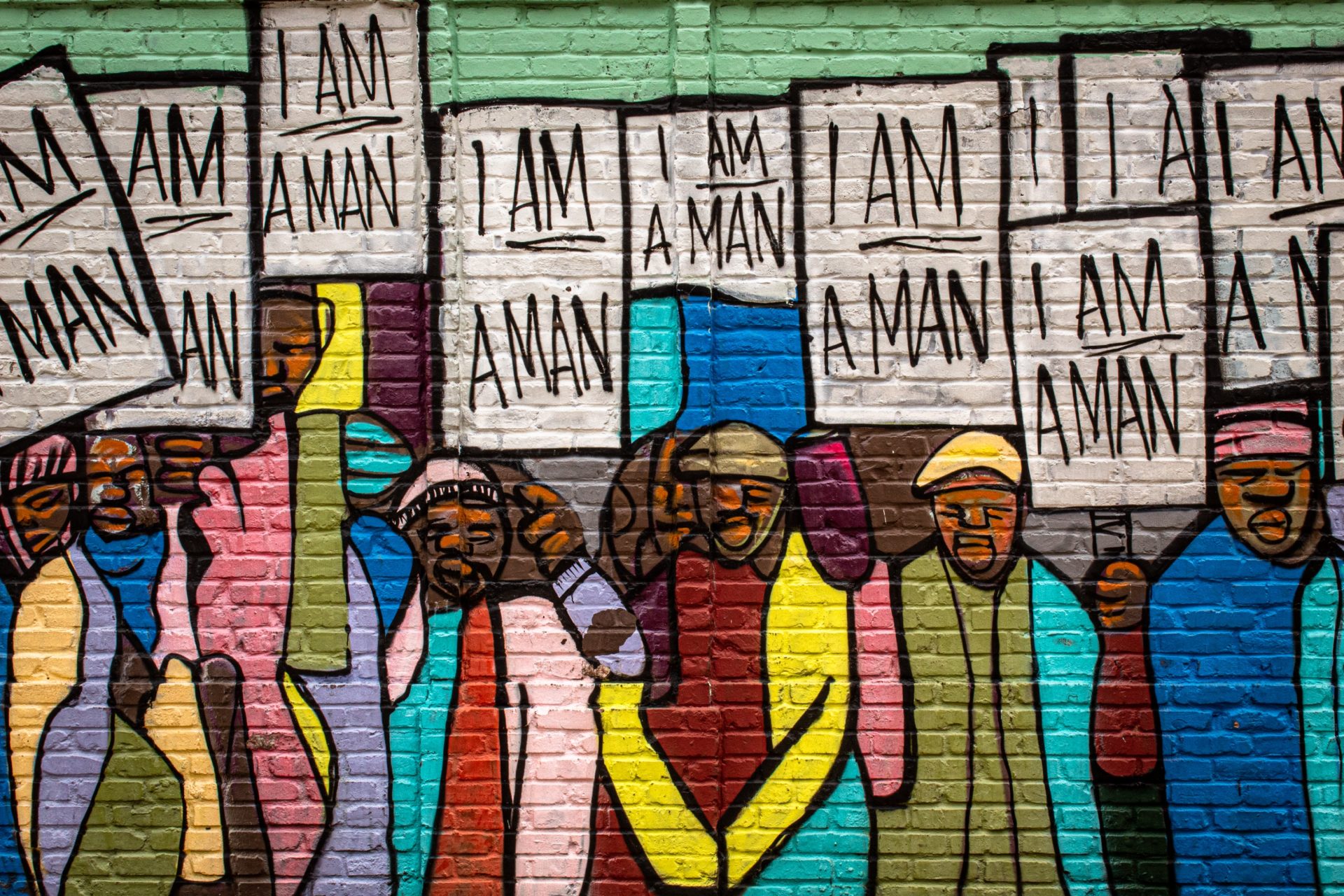
I Am a Man Mural, Memphis, Tennessee.
Photo by Joshua J. Cotten on Unsplash
Martin Luther King Jr. was a radical
You will rarely find King’s sermon mentioned on Martin Luther King Day in churches or in public remembrances of his legacy for one reason: as King became nationally celebrated, his legacy as a radical was also sanitized. These days, you are just as likely to see King’s legacy cited as an admonishment to Black Lives Matter protests as you are in support of them. For many, King’s legacy can be neatly reduced to civil rights and his peaceful methods of protest.
The reality is that, while peaceful, King’s methods were intended to be disruptive in precisely the ways that many find abhorrent today. When a group of white moderates criticized his tactics, saying, “a cause should be pressed in the courts and negotiations among local leaders, and not in the streets,” King wrote back in defense of his actions: “You are exactly right in your call for negotiation. Indeed, this is the purpose of direct action. Nonviolent direct action seeks to create such a crisis and establish such creative tension that a community that has constantly refused to negotiate is forced to confront an issue.”
King wanted to create a crisis, because only in crisis is there the capacity for real change in our world. But that same willingness to disrupt made him deeply unpopular during his lifetime. At the time of his death, King had just an unfavourability rating of 63% according to the last Gallup poll before his death. Now, over 50 years after his death, his approval rating sits about 90%. But that popularity has come at a cost; King’s legacy has been sanitized so that it is agreeable, when in fact his leadership continues to have import for challenging white supremacy in our country today. It is hard not to look at the new Martin Luther King Jr. Memorial on the National Mall and see a reflection of those admonished by Jesus in Luke 11:47-48: “Woe to you! For you build the tombs of the prophets whom your ancestors killed. So you are witnesses and approve of the deeds of your ancestors, for they killed them, and you build their tombs.”
This Martin Luther King Jr. Day, communities of faith need to tell the truth about King and introduce worshippers to a King they likely have never met – a visionary, a truthteller, a radical.
The views expressed are those of the author and not necessarily those of American Baptist Home Mission Societies.


